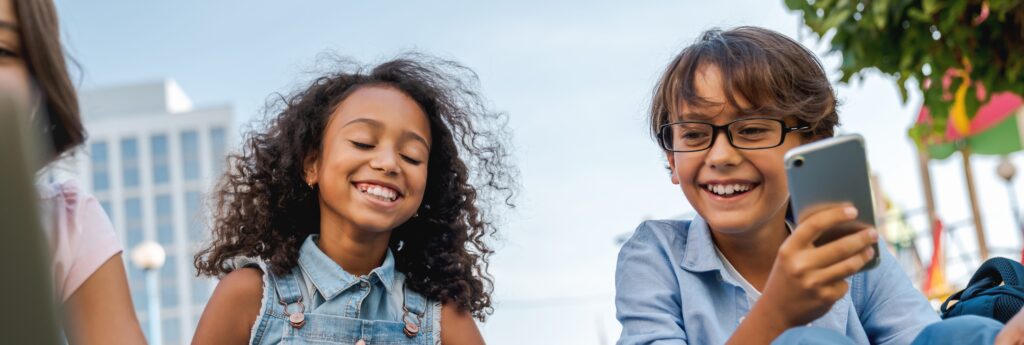
Florida Study: Kids With Their Own Smartphones Report Enhanced Well-Being
By Dr. Marisa Azaret
For parents on the fence regarding whether to provide their preteens with a smartphone, the University of South Florida’s 2025 Life in Media Survey offers some interesting findings. The study, based on a survey of 1,510 Florida 11- to 13-year-olds, found that “on nearly all measures of health and wellness, kids who have their own smartphones fared better, or at least no worse, than kids who don’t have smartphones.”
Among findings, kids with smartphones reported more in-person gatherings with friends than those without the devices. And kids with smartphones were less likely to agree that “life often feels meaningless” or to acknowledge feelings of depression most days. They were also more likely to report “feeling good about themselves,” according to the study.
Kids Are Getting Smartphones at Younger Ages
A further revelation of the USF study, children are receiving smartphones at increasingly young ages.
Whereas prior studies revealed that 55 percent of 11-year-olds had their own smartphone, the 2025 study indicated that 72 percent of 11-year-olds now have their own devices. What’s more, respondents reported receiving their devices at young ages. The 11-year-olds surveyed, on average, received a smartphone when they were just 8 ½ years old.
While there is no-one-size-fits-all rule about when to give a child a smartphone, the American Academy of Pediatrics (AAP) recommends that parents consider delaying the introduction of the devices until a child is at least age 11 or when there is a clear need for electronic communication. However, every child is unique, and parents are encouraged to consider their child’s maturity, responsibilities, and digital readiness, when making a decision that is right for their family.
‘Thorns’ Among the Reported Smartphone ‘Roses’
While the study findings may put some parents’ minds to rest about the potential perils of
smartphone use among kids, a further read of the 86-page report identifies a few pitfalls. The study noted that “specific digital behaviors, not smartphone ownership alone, are associated with ill-being.”
Who is most at risk? According to findings, kids who post publicly online – especially those who post often – were most likely to report moderate or severe symptoms of depression, compared to those who don’t post publicly. Heavy social media use is also associated with harms, even if there is no posting by the child. Kids who use social media daily or multiple times per day were more likely to indicate that technology impairs their lives.
Cyberbullying is pervasive. The study also noted that even small amounts of cyberbullying are associated with adverse outcomes. A total of 57 percent of survey respondents had experienced cyberbullying in the prior three months. And one in five kids experienced cyberbullying one or more times per week.
To address these threats, parents are encouraged to:
- Monitor your child’s use of social media platforms, and ensure that any accounts they have are
- Encourage activities to keep kids engaged and minimize use of social media.
- Be vigilant of any changes in behavior that may reflect cyberbullying.
- Regularly ask kids if they have experienced cyberbullying (hurtful photos or video posted about them, being called hurtful names, or had rumors or lies spread about them.) If so, work to address these through schools, social media sites where bullying material is posted. Be sure to offer your child support in dealing with cyberbullying, including talk therapy, if needed.
- Avoid having kids’ cellphones in their rooms at night. Access to the phones overnight is associated with reduced sleep and increased involvement on social media.
Dr. Marisa Azaret is Director of Clinical Psychology at Nicklaus Children’s Hospital and Co-Chair of the Digital Safety Alliance. If your child is experiencing symptoms of depression, anxiety, or other behavioral disorders, it may be time to seek professional help. Contact the Nicklaus Children’s Psychology Team at: 305-669-6503.
